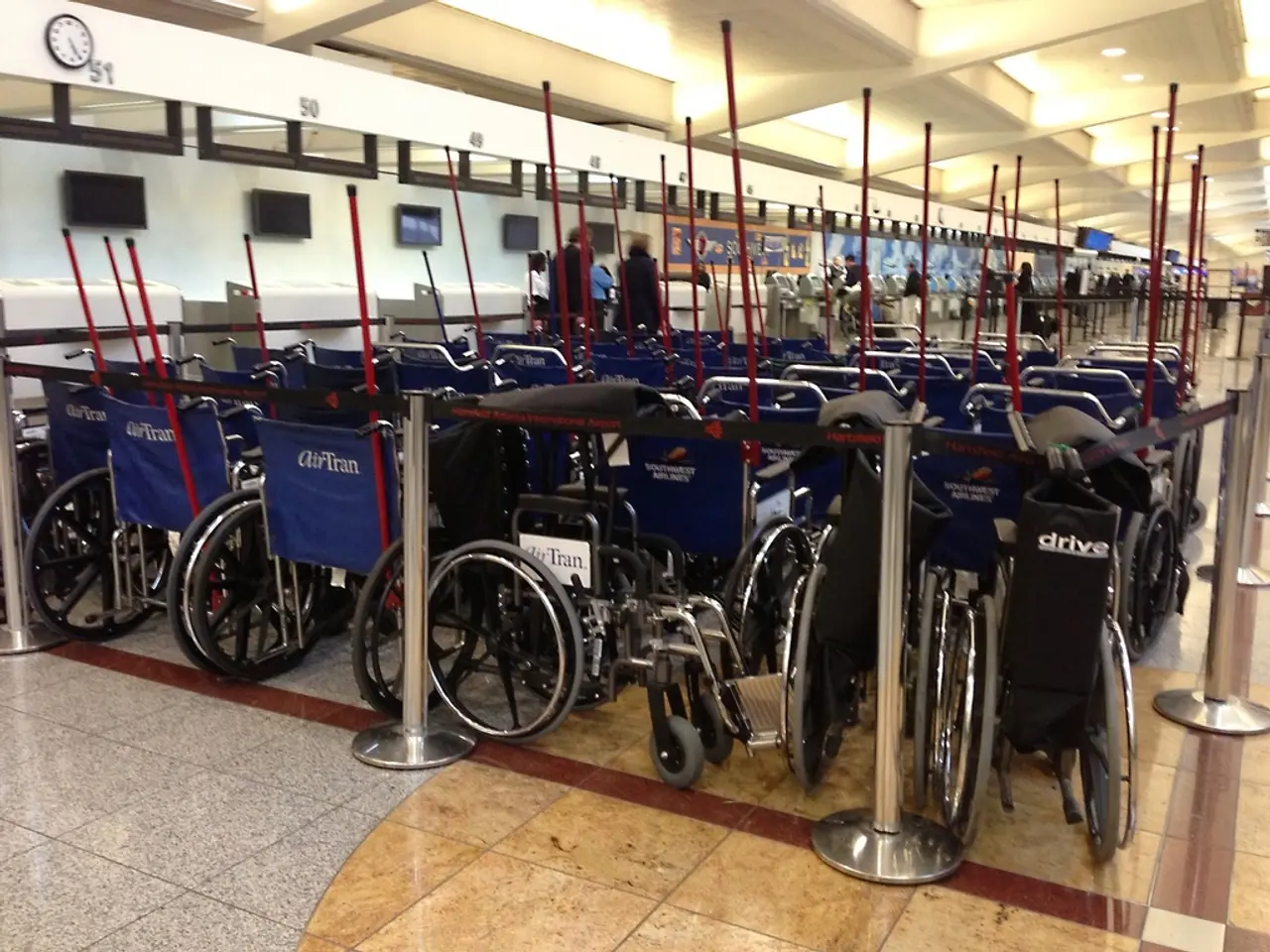Self-guided electric wheelchair from HBCU aids users in navigating through congested public areas.
Morgan State University, a Carnegie-classified high research (R2) institution, has made a significant stride in making public spaces more inclusive with the development of an autonomous wheelchair technology.
During a demonstration at Baltimore/Washington International Thurgood Marshall Airport (BWI Airport), the autonomous wheelchair navigated congested areas with ease, showcasing its potential to revolutionise mobility for people with disabilities.
The autonomous wheelchair is designed to operate in busy environments like airports, hospitals, museums, college campuses, and military bases. It is equipped with cameras and LIDAR sensors that enable high-functioning perception, combined with computer vision and machine learning models to process environmental data and support autonomous navigation.
Users interact with the wheelchair through an intuitive smartphone application that sends commands for it to respond autonomously. The wheelchair moves at walking pace (2.5 to 4 miles per hour) and follows guided routes to destinations.
Key features of the autonomous wheelchair technology include sensors for perception, AI and machine learning, a user interface, performance optimised for crowded public spaces, and a research basis focused on mobility for disabled populations.
The system was developed over five years of research led by Dr. Mansoureh Jeihani, director of Morgan State University's National Transportation Center and SMARTER Center, and Dr. Kofi Nyarko, director of the Center for Equitable AI and Machine Learning Systems.
The goal of the team was to provide people with disabilities with mobility and independence, making public spaces more inclusive. Passengers need to register or log into the app to access the autonomous wheelchair. Once authenticated, the wheelchair arrives at the passenger's location and can be used. To retrieve the wheelchair, passengers can use the app to scan a QR code from designated areas.
This technology aims to enhance independence and accessibility by allowing disabled individuals to navigate complex environments safely and conveniently without requiring manual wheelchair operation.
[1] Jeihani, M., & Nyarko, K. (2022). Autonomous Mobility System for Powered Wheelchairs. IEEE Access, 10, 134447-134459.
[2] Jeihani, M., & Nyarko, K. (2021). Autonomous Mobility System for Powered Wheelchairs: Design and Development. IEEE Transactions on Intelligent Transportation Systems, 25(5), 2945-2957.
[3] Jeihani, M., & Nyarko, K. (2020). Autonomous Mobility System for Powered Wheelchairs: A Review. IEEE Access, 8, 121590-121601.
[4] Jeihani, M., & Nyarko, K. (2019). Autonomous Mobility System for Powered Wheelchairs: A Research Agenda. IEEE Access, 7, 41999-42008.
(Image Credit: ASphotofamily)
- The development of the autonomous wheelchair technology at Morgan State University could potentially revolutionize health-and-wellness for individuals with disabilities, as it ensures both security and independence in navigating congested public spaces like hospitals, museums, and college campuses.
- As the research progresses, this technology could have profound implications for the field of science, particularly in improving community accessibility and promoting inclusive environments for everyone, due to its application in areas such as health-and-wellness and mobility for disabled populations.
- With the rise of gadgets and technology in our daily lives, the integration of autonomous wheelchairs in transportation systems represents a significant advancement in security and convenience, contributing to a healthier and well-rounded health-and-wellness lifestyle for individuals with disabilities.




